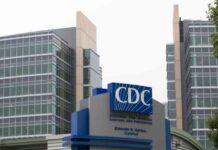The Food and Drug Administration’s decision not to approve Lykos Therapeutics’ application for MDMA (a psychedelic drug known on the street as Ecstasy or molly) plus therapy for post-traumatic stress disorder comes as no surprise, given an advisory panel’s “no” vote on the application in June. But if lessons from reproductive health are any signal, I believe there is a future for psychedelics in health care.
As the executive director of the Petrie-Flom Center for Health Law Policy, Biotechnology, and Bioethics at Harvard Law School, my work includes legal, ethical, and policy analysis surrounding psychedelic medicine. We’ve hosted two major convenings on this topic this summer alone as part of our growing Project on Psychedelics Law and Regulation. Most participants seemed to feel that regardless of the FDA’s ruling on Lykos’ application, the potential for psychedelic medicine is real and requires ongoing, careful attention from scientists and policymakers.
Having worked in reproductive health law for many years, advocating for access to emergency contraception, abortion services, and fertility care, I see parallels between psychedelic medicine and reproductive health care. Both face a gap between public support and restrictive laws, leading to stigma and hindering rational legal, policy, and ethical analysis. Despite legal restrictions, both types of care are in high demand and widely used, with those without resources or marginalized identities being most affected by restrictions.
Research demonstrating safety and effectiveness is crucial for both psychedelic medicine and reproductive health care to gain approval and acceptance. Just as emergency contraception faced years of controversy before becoming fully available, mifepristone’s approval also took time and effort to prove its safety and effectiveness. The landscape of abortion care has been transformed through persistent advocacy, creativity, and support for community-based use, ensuring accurate information and eliminating barriers to access.
In the case of psychedelics, there are still numerous legal and policy considerations to address, similar to the challenges faced by mifepristone after approval. The path ahead could involve FDA approval of new products, state decriminalization, policies to protect Indigenous practices, and considerations for religious or spiritual use. Ethical issues such as therapist misconduct and participant vulnerability must also be addressed, along with ongoing monitoring of safety post-approval.
Embracing science and evidence-based practices is crucial for the acceptance and broader use of psychedelic medicine, just as it was for emergency contraception and mifepristone. A thorough process can help reduce stigma and lead to broader acceptance of these substances in healthcare. The evidence-based path is always worth the effort.
Susannah Baruch, J.D., is the executive director of the Petrie-Flom Center for Health Law Policy, Biotechnology, and Bioethics at Harvard Law School, and her work in both reproductive health and psychedelic medicine highlights the importance of evidence-based approaches in healthcare advancements.


















